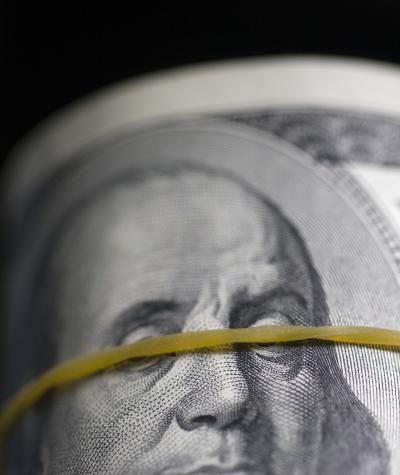Across the political spectrum, four-out-of-five Americans consistently support greater transparency in our democratic process. Yet a growing number of state legislatures around the country are moving to block public access to information about who is spending big money to secretly influence our vote and our government.
Last week, South Dakota became the latest state to adopt sweeping legal protections to shield information about politically active nonprofit organizations and their donors from the public eye, undermining voters’ right to know who is spending big money to influence our elections.
In South Dakota, the newly enacted bill, H.B. 1079, broadly prohibits every executive branch agency in the state from requiring nonprofits to disclose any information beyond the meager requirements in existing state law.
The law effectively bars the South Dakota Secretary of State and other state officials from using their regulatory authority to expand political transparency rules for “nonprofit corporations,” including 501(c)(4) “social welfare” groups and 501(c)(6) trade associations.
They can legally spend substantial sums to support or oppose candidates in state elections and have become potent vehicles for funneling unlimited secret spending, sometimes known as “dark money,” into federal and state elections.
Under South Dakota’s existing election law, nonprofits that pay for independent election-related ads need not disclose their sources of funding on campaign finance filings, and H.B. 1079 prevents any additional information about these nonprofits’ funders from being made available to South Dakota voters.
South Dakota’s new law is part of a burgeoning movement among state lawmakers to hide key information about politically active nonprofits, including the identities of wealthy special interests, from public scrutiny.
In the last three years, Arizona (2018), Mississippi (2019), Utah (2020), West Virginia (2020), and Oklahoma (2020) have all enacted laws that prohibit public officials from requiring meaningful disclosure about politically active nonprofit organizations. Similar bills have been introduced this year in Iowa, Nebraska, and Tennessee as well.
While lawmakers backing these laws are quick to claim a historic tradition of anonymous speech—citing Thomas Paine’s and the Founding Founders’ use of pseudonyms, for example—their real motives are less noble: carving out legal protections for secret spending to influence elections.
Not all states are pursuing anti-transparency measures, however. In 2018, North Dakota voters approved a constitutional amendment that requires comprehensive disclosure of the “ultimate and true source” of money spent to influence state elections and legislation.
And transparency proponents in the states can also look to the for the People Act, H.R. 1, a comprehensive package of election reforms that would substantially overhaul and strengthen transparency requirements in federal campaigns.
This legislation would close existing loopholes that allow nonprofits to fund independent expenditure ads without publicly disclosing information about their donors.
The U.S. House of Representatives passed H.R. 1 on March 3, 2021, a milestone that would increase the momentum behind similar pro-transparency reforms at the state level.
Rather than carving out legal protections for nonprofits’ political spending, state lawmakers should require real transparency regarding the sources of big money in our elections to create more governmental accountability, less influence for wealthy special interests and less political corruption.
